Sharuko on Saturday
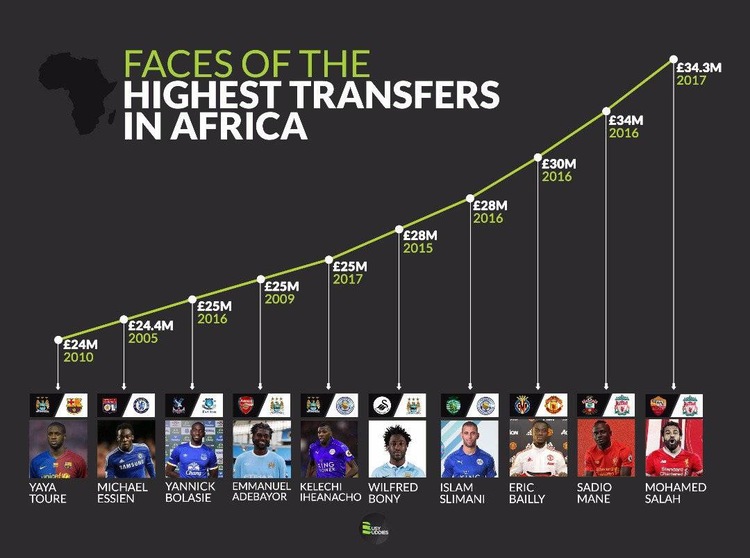
 I HAVE always had a romantic attachment to the English Premiership because, more than being just a blood-and-thunder theatre of football attrition, its fascinating adventure provides me with a tracker of my journey in the trenches of this profession. Long before it became this multi-billion dollar industry, where one of its clubs can now afford to pay its star player a staggering $380 000 a week, it used to be a violence-ridden league, where fresh recruits were handed contracts of about £800 per week.
I HAVE always had a romantic attachment to the English Premiership because, more than being just a blood-and-thunder theatre of football attrition, its fascinating adventure provides me with a tracker of my journey in the trenches of this profession. Long before it became this multi-billion dollar industry, where one of its clubs can now afford to pay its star player a staggering $380 000 a week, it used to be a violence-ridden league, where fresh recruits were handed contracts of about £800 per week.
But the advent of the Premiership, when the clubs broke away from a century-old flirtation with the Football League in 1992, dramatically changed the landscape and set in motion the stunning transformation that has seen it becoming this massive money-making-and-money-spending mean machine.
For me, on a personal note, the league’s evolution into the Premiership coincided with my year of graduation from the romance of journalism school and a step into the real and tough adult world of the working class, when I landed my first job at this newspaper on November 1, 1992.
A quarter-of-a-century later, I am still here, at the only company I have had the privilege to call my employer in all my 25 years of working life, with the English Premiership, whose first season exploded in August 1992, providing a reminder every year of the time I have spent in these trenches.
As fate would have it, the first championship race in the era of the English Premiership would also provide me and a lot of my Manchester United-supporting colleagues either born in or after 1970, with the joy of finally seeing our club being crowned champions for the first time in our lives.
For others, born before us, it marked the end of a lengthy 26-year-wait for the title and, for us, born in the year the FIFA World Cup was first broadcast in colour on television, it marked the end of a 23-year wait to feel what it means to celebrate your favourite club’s championship success.
Of course, this year also marks exactly 110 years since my beloved Red Devils embarked on a campaign that would see them winning their first top-flight league title during the 1907/ 1908 season — winning 13 of their first 14 games, including 10 wins in a row between September 21 to November 24 that year — and topping the table from start to finish.
That my love affair with United was never shaken by the club’s repeated failings, when it came to the league championship race, is something I have taken as an enduring mark of a true romance and explains why I never find any logic in those who mock Liverpool fans for their long wait for another title, which has been dragging on since 1990.
Or those who mock Arsenal fans for their lengthy barren run, which has now stretched into its 13th year in a fruitless battle to try and return to the winners’ podium reserved for the league champions.
That’s why I will always have a great deal of respect for the fans of clubs outside our two biggest cities — those who support Hwange, FC Platinum, Shabanie, ZPC Kariba, Tsholotsho, Chapungu, Triangle and Ngezi Platinum — whose loyalty and belief have not been shaken by a curse in which no team from outside Harare and Bulawayo have been crowned champions in this country for 51 years now.
That’s why I will always have time for the fans of Mhangura, Gweru United, also known as Pisa Pisa, Rio Tinto, Tanganda, Ziscosteel, Lancashire Steel, Bata Power, Masvingo United, also known as Yuna Yuna, for the enduring loyalty they had in the cause of their teams and the hopes they nursed in a brutal landscape where history was unkind to their dreams.
And why I will always have time for the supporters of Kadoma United, also known as Yematomati, Come Again, Golden Valley, Lulu Rovers, Chegutu Pirates, Karoi United and Shamva, to name but a few, among a group of teams which have battled long and hard to try and crack into the domestic Premiership.
All the time hoping to one day see their team not only dancing with the very best in this country, but like Leicester City before them, one day enjoying that incredible feeling that comes with becoming national champions of our football, in an environment where history is hostile to their cause.
Given my fascination — not with the dominant bull, where success is everything and failure is unacceptable, which made me resist the Liverpool glory of the ‘80s — but with just a football team that cheered my spirits despite its record of doomed missions, I keep asking myself why I didn’t end up being seduced into the arms of Coventry City.
25 YEARS ON, KING PETER REMAINS THE BENCHMARK OF EXCELLENCE
For later-day converts to the English Premiership, whose latest marathon got underway last night, this might sound a bit crazy because Coventry City isn’t a club that rings a bell in them, especially now when it is wallowing in League Two, the fourth-tier league which can be described as Division Four.
But those who have been part of this league’s adventure for years recall a Coventry City that used to punch above its weight, including winning the very FA Cup that has become Arsene Wenger’s saving grace at the Gunners, in 1987 when the Sky Blues beat Tottenham 3-2 at Wembley.
And, in 1991, Coventry City had signed a teenage Zimbabwean footballer, whose greatness I had seen the very first day I saw him in action one afternoon at Rufaro a year earlier in the colours of his boyhood club Highlanders. However, not even the presence of this diminutive genius in the Sky Blues’ squad could woo me into their camp, although I kept tracking the progress of a footballer whom I had long concluded had been born with greatness flowing in his veins.
Some, like this boy wonder, are born great, some, like Bruce Grobbelaar, achieve greatness and some, like Benjani Mwaruwari, have greatness thrust upon them.
On Tuesday, the English Premiership turns 25 and the world has been celebrating the stunning transformation of this league from a lawless jungle dominated by hooligans in the stands and hard-drinking footballers who graced its fields, into this great global football show that has become a huge part of the lives of billions of people.
And, for me, it’s time to celebrate the brilliance of a Zimbabwean football star, who was so good. There has never been anyone like him since and there are some who also argue, with good reason too, that there was never anyone like him in our country.
Peter Ndlovu, the only elephant that could fly, is someone I have routinely called King Peter, a football genius who was simply ahead of his time, a freak of nature, who made this game the beautiful sport that it is and a natural talent whose brilliance was so intoxicating, so overwhelming, he was the ultimate artiste.
The one I always thank God for His decision that he had to be born this side of the Zambezi and not on the other side of his Binga rural home, which the Zambians call their land, that he had to be born on this side of the Limpopo and not the other side, which would have seen him play for Bafana Bafana and not the Warriors.
The boy who rose from humble surroundings in Makokoba to become the national football leader who would, like Moses and the Israelites, lead us from the bondage of perennial under-achievement, where we became the laughing stock of our rivals, to the Promised Land of the Nations Cup finals.
A Warriors skipper, whose leadership was embraced by everyone, whose appeal shattered the club boundaries that divide us into little kingdoms, the one we always turned to for salvation when the going got tough and the one who always delivered for us no matter the occasion, no matter the opposition.
In an era of toxic tribal battles, fuelled by the unregulated space that social media now provides to thugs to peddle their hatred of others based simply because they don’t belong to their tribe or they don’t support their football club or they don’t speak like them, I always use King Peter as a defining symbol of a unifying factor.
A reminder of a time when the football talents of a man made all of us look beyond the little things that divide us, but concentrate on the many things that unite us, the bigger picture that we are all Zimbabweans and we should derive a lot of pride in our unique identity because, no matter what they tell you, we are a special people.
A throwback to a time when the toxic politics that divide us would be dissolved by the sheer athletic powers of a man who, every time he wore the Warriors jersey, would turn himself into a destructive weapon for our opponents and unite us all in finding pride in our identity as Zimbabweans.
Twenty five years on, this merry ride on this English Premiership bandwagon, we have had King Cantona, King Ryan, King Gerrard, King Shearer, King Ronaldo, King Henry, King Lampard, King Bergkamp, King Wayne, King Terry, King Zola, King Fowler, King Cole and a host of others.
But, for me, King Peter remains the enduring benchmark of football excellence, not because he was the best of the lot, far from that, but simply because he is one of us and if I can’t celebrate his incredible journey from Makokoba to become the first visiting player since 1962, when even this football institution called Dynamos hadn’t been formed, to score a hattrick on the hallowed turf of such an iconic ground like Anfield, when he grabbed all the goals for Coventry City in a 3-2 victory for them on March 14 1995, then who will?
Only in this country, where we have allowed ourselves to be prisoners of our fascination with negativity, to be abused by a sickening tendency to be blinded from seeing the purity that exists in those who are our countrymen and women because we have been taught to hurt who we are, for one reason or another, will you find a people taking time, as the world reflects on 25 years of the English Premiership, to celebrate the greatness of someone like Peter Ndlovu.
MAYBE WE NEED TO BORROW A LEAF FROM OUR COLLEAGUES IN BOTSWANA
This week, amid the controversy that saw Botswana sprinter Isaac Makwala being barred from competing in the 400m at the World Championships in London because organisers said they wanted to contain the outbreak of a virus, we saw the entire country coming together and rallying behind their man.
The outrage was loud and clear because they felt cheated, they felt their man had been given a raw deal, their athlete had been abused and Botswana had been robbed of a golden chance for one of them to become a World Champion.
We even saw the political leadership in that country even going to the extent of declaring Botswana was going to hold a national holiday in honour of Makwala should the sprinter go on to win gold in the 200m at the same World Championships.
Botswana’s Sports Minister Thapelo Olopeng told BBC Sport that the country would also pay Makwala the $10 000 he would have received from the government had he won 400m gold despite him not running in that race.
“The man has lifted the name of our country higher and higher, and he deserves this welcome as our hero,” said Olopeng.
“What happened to our athlete has created a lot of displeasure in the country and we are very unhappy. To me it’s a great disappointment.”
Compare that with us, and the reaction in this country that followed ZIFA’s decision to appeal against the technical error by that Swazi referee in dumping us from the CHAN tournament.
Some said this was the work of sore losers, even when there are examples of matches decided by technical errors of a referee being replayed, even when the referees who committed that error have been suspended and even when it was a defining moment of the contest.
Others chose to say we should focus on the fact that we were horrible that afternoon, of course we were, but would we be the first team to progress after a pathetic performance and what did it say about us that, even against the background of such a horror show, we managed to win that match in regulation time?
Come on guys, let’s not hate and hurt ourselves so much because, far from it, we are a special people and while we might decide to blind ourselves from our special qualities, at least, others are watching and, for the avoidance of doubt, this is what English journalist Phil Shaw wrote about King Peter in the Independent newspaper on September 27, 1992, after his wonder goal against Norwich City.
“THE sun may have set on the Empire, but the stunning equaliser by Peter Ndlovu that earned Coventry a point proved there are still rich pickings in transfer imperialism,’’ Shaw wrote.
“The 19-year-old Zimbabwean, whose name is pronounced ‘Un-love’, first came to Highfield Road from the Highlanders club during John Sillett’s reign as manager. When Sillett boasted that Coventry would be ‘shopping at Harrods’, he obviously meant “shopping in Harare”.
“Ndlovu, who idolises Bruce Grobbelaar and sometimes carries his boots in a Manchester United hold-all, cost pounds 10 000. Norwich are not the first to rue his budget-price brilliance.
“Exactly a year ago, he hit a spectacular winner against Aston Villa (who themselves bought Dwight Yorke for peanuts in Tobago). Ndlovu failed to score again all season, and for every flash of class there was another when he looked as if he were playing courtesy of Jim’ll Fix It.
“Saturday’s goal, Ndlovu’s third in six games, epitomised his dramatic improvement: blistering pace and perfect balance as he burst in from his wide-left position, a sublime shimmy in the style of Jimmy Greaves at his peak to make the Norwich keeper Bryan Gunn commit himself, topped off by a wonderfully composed finish.
“Bobby Gould, the present Coventry manager, later claimed that Ndlovu, with Ryan Giggs, was ‘just behind George Best’ in terms of ability.
“That was exaggeration bordering on sacrilege, but you could see what he was driving at. Ndlovu’s lifestyle also gives him an advantage over the young Best, of which more anon.
“Last week’s well-publicised ‘Guinness therapy’ was an example of the new, carefree Coventry.
“The brewers might be less chuffed to learn that Ndlovu, despite a Best-like moment of pure genius, is in a temperance league of his own.’’
Need I say more or can I write any better? DEFINITELY NO!
To God Be The Glory
Come on Warriors!!!!!!!!!!!!!!!!!!!!!!!!!!
Khamaldinhoooooooooooooooooo!
Text Feedback — 0719545199 (I have graduated to OneFusion, why haven’t you?
WhatsApp Messenger — 0719545199
Email — [email protected]
Skype — sharuko58
Chat with me on Facebook, follow me on Twitter @Chakariboy, interact with me on Viber or read my material in The Southern Times or on www.sportszone.co.zw. The authoritative ZBC weekly television football magazine programme, Game Plan, is back on air and you can interact with me and the legendary Charles “CNN” Mabika and producer Tich “Chief” Mushangwe every Monday night at 21.45pm.




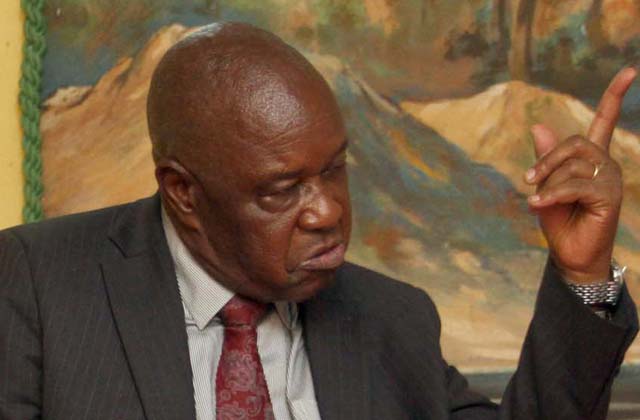
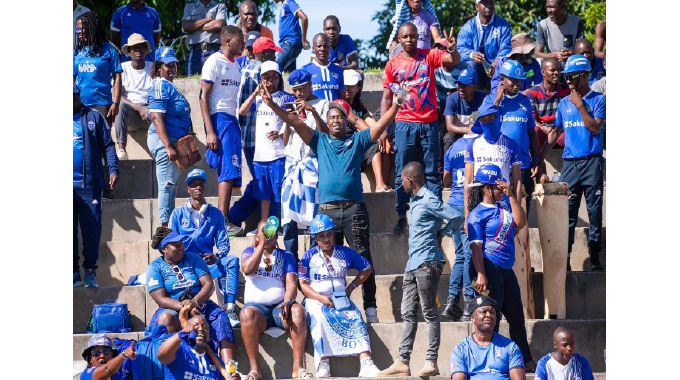
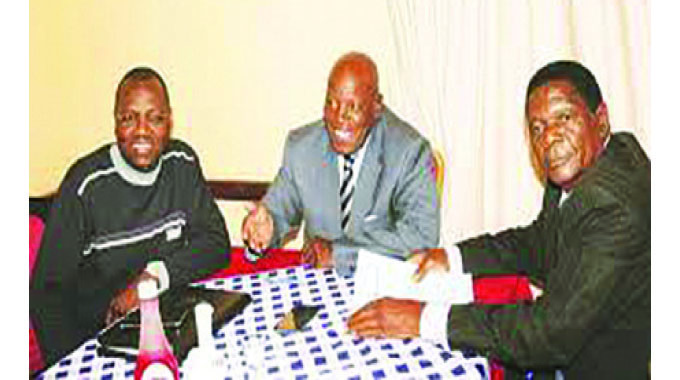
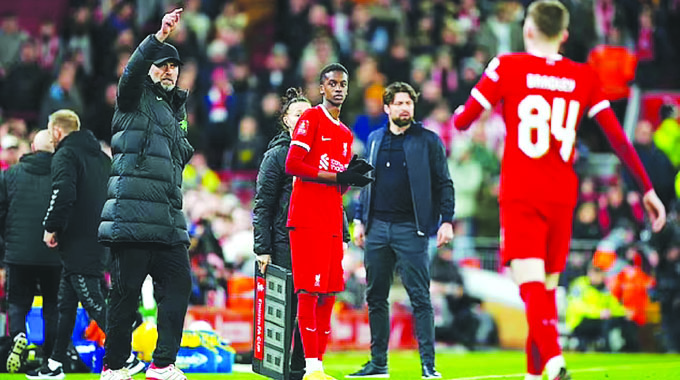

Comments